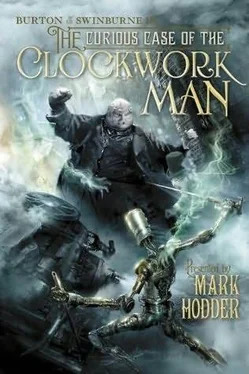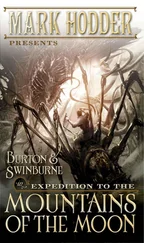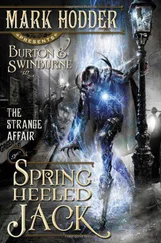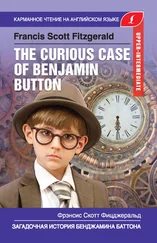Mark Hodder - The curious case of the Clockwork Man
Здесь есть возможность читать онлайн «Mark Hodder - The curious case of the Clockwork Man» весь текст электронной книги совершенно бесплатно (целиком полную версию без сокращений). В некоторых случаях можно слушать аудио, скачать через торрент в формате fb2 и присутствует краткое содержание. Жанр: Детективная фантастика, на английском языке. Описание произведения, (предисловие) а так же отзывы посетителей доступны на портале библиотеки ЛибКат.
- Название:The curious case of the Clockwork Man
- Автор:
- Жанр:
- Год:неизвестен
- ISBN:нет данных
- Рейтинг книги:3 / 5. Голосов: 1
-
Избранное:Добавить в избранное
- Отзывы:
-
Ваша оценка:
- 60
- 1
- 2
- 3
- 4
- 5
The curious case of the Clockwork Man: краткое содержание, описание и аннотация
Предлагаем к чтению аннотацию, описание, краткое содержание или предисловие (зависит от того, что написал сам автор книги «The curious case of the Clockwork Man»). Если вы не нашли необходимую информацию о книге — напишите в комментариях, мы постараемся отыскать её.
The curious case of the Clockwork Man — читать онлайн бесплатно полную книгу (весь текст) целиком
Ниже представлен текст книги, разбитый по страницам. Система сохранения места последней прочитанной страницы, позволяет с удобством читать онлайн бесплатно книгу «The curious case of the Clockwork Man», без необходимости каждый раз заново искать на чём Вы остановились. Поставьте закладку, и сможете в любой момент перейти на страницу, на которой закончили чтение.
Интервал:
Закладка:
“What is it?” he muttered. “Why do I feel that I've failed?”
He came to Vere Street and stopped outside a narrow building sandwiched between a hardware shop and the Museum of Anatomy. It had a bright yellow door and a bay window, behind which a deep blue curtain hung.
Taped against the inside of the window there was a notice that read: The astonishing COUNTESS SABINA, seventh daughter, CHEIROMANTIST, PROGNOSTICATOR, tells your past, present, and future, gives full names, tells exact thought or question on your mind without one word spoken; reunites the separated; removes evil influences; truthful predictions and satisfaction guaranteed. Consultations from 11 A.M. until 2 P.M. and from 6 P.M. to 9 P.M. Please enter and wait until called.
Burton looked at his reflection in the glass. His fierce countenance was a patchwork of red and purple bruises.
“None of this is your doing,” he said, “but Chance has put you in the thick of it. Now you have to play the game to the finish.”
His eyes moved to the notice.
Prognosticator.
He leaned forward and rested his forehead against the cold glass.
The African Eye will be found.
He was suddenly short of breath and started gulping in mouthfuls of air.
Found by you.
“Bismillah,” he gasped. “Bismillah. It's all gone to hell.”
An early-morning cafe had opened across the street. Burton took a moment to even out his breathing then walked over to it, entered, and asked for a coffee.
“You're the first bloomin’ customer I've had in days,” the proprietor grumbled, glancing curiously at the explorer's battered features. “You fancy a round of buttered toast? It's on the house, mate.”
“That would be very welcome,” Burton answered. “Thank you.”
He sat quietly, sipping coffee and eating toast until a light came on and glowed through the fog from the upper window of the building opposite. He gave it forty minutes or so, then left the cafe, crossed the road, and knocked on the door.
He waited, and, after a few moments, knocked again.
The countess opened the door. She wore a long, shapeless midnight-blue gown.
“Countess Sabina,” he said. “My apologies. I know it's early.”
“Captain Burton. My goodness, what has happened to you? Were you run over by one of those dreadful omnipede things?”
He managed a wry grin. “Something like that, yes. I require your talents. It's a matter of great importance.”
She gazed at him silently for a moment, her eyes unfathomable, then nodded and stepped aside.
He entered and followed her along a short passageway, through a doorway hung with a thick velvet curtain, and into the room beyond. It smelled of sandalwood. Wooden chairs stood against its undecorated walls.
They stepped into a smaller room. It was sparsely furnished, though its shelves and mantelpiece were crowded with esoteric trinkets and baubles. A camphor lamp hung low over a round table in the middle of the chamber. The countess put a match to its wick.
She sat down.
Burton settled opposite.
He moistened his lips and said: “I'm-I'm afraid.”
She nodded silently. Her eyes shifted focus. She seemed to be looking right through him. In a barely audible voice, she whispered: “The cycle is complete. The time of change is upon us. War is coming.”
“And I have a role to play.”
“Yes.”
“I feel… displaced.”
“You are. This is not your intended path.”
“Is it anybody's?”
“No. We live in a strange world, Captain, but soon, it will be even stranger for both of you.”
“Both of us? Are you referring to my assistant?”
“Both of you, Captain Burton.”
“Explain.”
“I-I can't. I don't know how. I'm sorry. I feel-I feel that you are divided.”
“It's odd,” Burton replied. “That's something I have often sensed myself, especially while in a malarial fever. I don't know what it means.”
“Neither do I, but-but, somehow, I know that everything depends on it!”
Burton leaned back in his chair, his eyebrows shooting up.
“ What? ”
The countess shook her head and shrugged. “I can say no more.”
A silence settled over them and they sat gazing questioningly at each other until the prognosticator murmured: “Why did you come to see me, Captain?”
Burton rubbed his gritty eyes. God, he was tired! He rested his scarred hands on the table, looked down at them, and answered: “Countess, the future should be shaped by the past and the present. The past and the present should not be shaped by the future. Yet on two occasions now-or at least two that I'm aware of-men have reached back and interfered with the course of events. Just how much damage have they done? We must answer this question. I want you to look into the future that was meant to be.”
“Original history? That is impossible.”
“Is it? When you take route A over route B, does route B cease to exist?”
“No-but though I can sense the other path, I cannot see along it. We are too far past the junction. It is beyond my ability.”
Burton reached into his pocket. “I have something that will augment your talent.”
He placed two black diamonds onto the table.
They hummed quietly.
“M ediumistic powers do not exist.”
Sir Richard Francis Burton let his statement hang in the air for a moment.
He continued: “In Victorian Britain-by which I mean our time as it would have been had Edward Oxford not interfered-astral bodies, mind reading, etheric energy, and spiritualism are, from a scientific standpoint, proven to be at best highly implausible and, in all probability, utter balderdash.”
The king's agent sat at the head of a long table in a grand hall in Buckingham Palace. There were nine others in attendance: the eugenically enhanced prime minister, Lord Palmerston; the vulture-faced secretary for war, Sir George Cornewall Lewis; the evasive-eyed chancellor of the Exchequer, William Gladstone; the grey-bearded foreign secretary, Lord John Russell; the miserable-looking first lord of the Admiralty, Edward Seymour; the deviant red-headed poet, Algernon Charles Swinburne; the aloof chief commissioner of Scotland Yard, Sir Richard Mayne; the clockwork philosopher, Herbert Spencer; and the steam-powered engineer, Isambard Kingdom Brunel.
Without any shadow of a doubt, it was the oddest gathering the royal residence had ever seen.
There was one further presence: King Albert's eyes and ears hung above the table like a bizarre chandelier-an apparatus comprised of hearing trumpets and lenses, which swivelled this way and that to follow the men as they spoke. The monarch was notoriously reclusive. Of those present, only Palmerston had met him face-to-face.
Brunel chimed: “You do not make sense, Sir Richard. Changing the course of history cannot alter the laws of physics. Whatever etheric energy might be, it plainly does exist.”
“As you know to your cost,” Swinburne offered, eyeing his friend's yellowing bruises.
“It exists here,” Burton responded. “But in Victorian times, it does not.”
“Your witch saw with such clarity?” Palmerston demanded.
“She's a seer, not a witch, and yes, Prime Minister, with the aid of two of the black diamonds, Countess Sabina's clairvoyance was accentuated to an extraordinary degree.”
“And the reason for the discrepancy?”
“The aforementioned gemstones. The Eyes of Naga.”
“How so?”
“As you know, the South American stone was discovered in Chile by Sir Henry Tichborne in 1796. He secreted it beneath the Crawls at Tichborne House. If time had not been altered, the diamond would have remained there until the building was demolished in the year 2068. About a hundred and thirty years later, Edward Oxford cut shards from it and used them in the mechanism of his time-jumping suit.”
Читать дальшеИнтервал:
Закладка:
Похожие книги на «The curious case of the Clockwork Man»
Представляем Вашему вниманию похожие книги на «The curious case of the Clockwork Man» списком для выбора. Мы отобрали схожую по названию и смыслу литературу в надежде предоставить читателям больше вариантов отыскать новые, интересные, ещё непрочитанные произведения.
Обсуждение, отзывы о книге «The curious case of the Clockwork Man» и просто собственные мнения читателей. Оставьте ваши комментарии, напишите, что Вы думаете о произведении, его смысле или главных героях. Укажите что конкретно понравилось, а что нет, и почему Вы так считаете.












